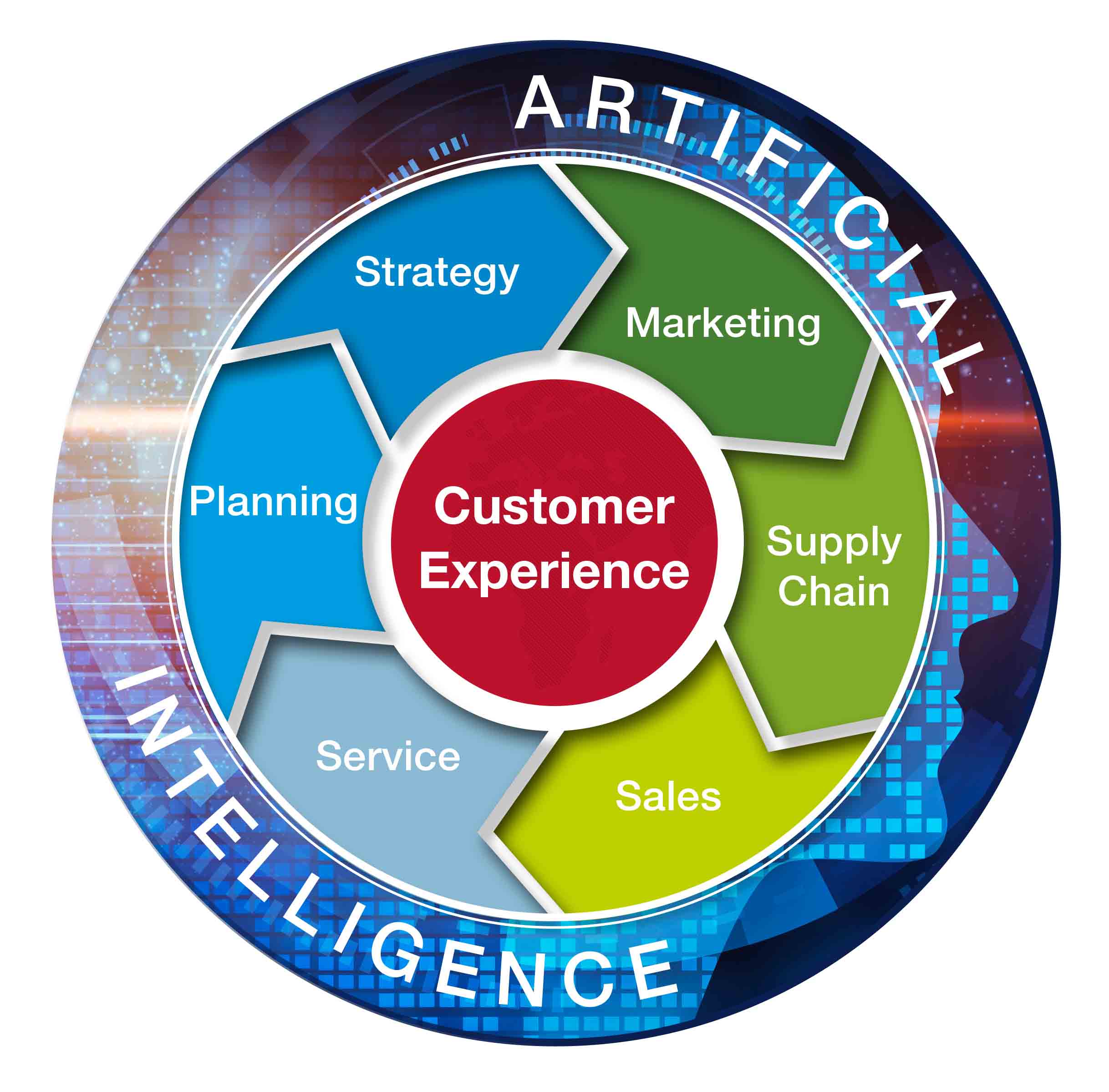As the world battles the pandemic, the fast-moving consumer goods market continues to face considerable changes.
On the positive side, demand for consumer packaged goods has shot up around the world and unlike many sectors FMCG, to use an old phrase, “has had a good war”.
But the impact of the changes on the way people shop is profound and we won’t be returning to 2019 when it’s all over. During the past 18 months, consumer habits jumped five years forward in terms of how they shop online.
At the start of the pandemic, purchases centred on basic needs – we all remember the sudden disappearance of pasta and toilet paper.

Now people are shopping more consciously and buying local whilst embracing digital commerce. Research from PFS and LiveArea shows that a third of consumers are demanding that products are naturally sourced, locally sourced or sustainable. This is particularly important for FMCG companies who have responded by adapting their products and broadening their supply chain to make the product more accessible.
These changes have accelerated the need to not only better understand change as it occurs, but also have the capabilities to respond quickly and effectively to sudden swings in customer behaviours.
Those organisations who were successful despite 2020 and 2021’s challenges, which has led to the demise of the high street, used AI to understand its disruptive changes and also ensured it was paired with a strong planning process and application. At the front of the supply chain Amazon leads the way, whose model of using data and AI to drive not just customer purchases but also constant and profound change throughout its operations. Prior to Covid, Amazon held a 30 percent market share of the UK ecommerce market and was in the perfect strategic position having already invested heavily in AI, distribution and the mechanisms needed to understand and predict consumer behaviour. With Covid-19, Amazon’s profits have soared further, despite heavy costs related to the pandemic. Ocado and Argos are other retailers successfully applying AI to generate market-beating growth.
It is the retailers that have the direct contact with the consumer, and therefore own the data. FMCG companies, by using AI effectively, could and should address this. Some, such as Diageo and Unilever, are well ahead of their peers in embracing AI, the next big step following the implementation of the BDA (big data and analytics) initiatives that were common last decade, but they are arguably not exploiting it to its full potential. Often traditional manufacturers in the FMCG sector are huge conglomerates, who as a consequence of their scale and structure were not able to be agile in their thinking and response and are behind the curve in terms of analytics. I have seen FMCG companies invest heavily in state-of-the-art analytics and modelling to try and understand consumer behaviour, but when changes or new trends emerge they are slow to respond, the information is not used throughout the whole supply chain, it is not used for mid to long-term planning and ultimately they miss their chance to capitalise on big opportunities.
In my experience this is because there is a disconnect between the senior management team and the business strategy, and middle management’s interpretation and implementation. It is no good, however, blaming middle management. The problems come from the top.

For instance, often the senior management team has a fear of new technology they might not understand, ethical concerns about machinery taking over from staff and a lack of knowledge and understanding about how to make AI work for the company. The end result is that AI is viewed more as “an add to the business”. This is in contrast to leading retailers where AI is the momentum of their “flywheel strategy”. Here AI provides the data to constantly build improvement and momentum and middle management is effectively utilised in deployment of this strategy to tackle specific immediate problems. Many FMCG companies such as Mars, Danone, Unilever and Procter & Gamble are reputed to have excellent integrated planning processes so have a significant opportunity if they put AI capability at the core of their business. To unlock its full potential, leadership teams must ensure AI is fully integrated with their end to end supply chain and not something peripheral that the business works around.
The other typical problem I see is when the job of implementing AI falls on middle management teams with little access to the board. In addition, companies that operate internationally with country specific management and supply teams can have similar disconnect issues when the AI strategy, being driven from one country and team, has little connection with other regional or central parts of the business.
So how can this disconnect be bridged and what does the senior management need to think about before and during implementing AI?
1) See AI as the momentum of your Flywheel – AI needs to be the momentum turning the cogs of the whole business. This is a model that the FMCG sector is well versed to. The heart of your business and the strategy should be ‘know and delight your customer’ with machine-learning innovations fuelling the efforts of other parts.

2) A voice on the board – AI needs to be seen as a central function with a voice on the board. Companies are beginning to see the value of appointing a Head of AI who has both a broad understanding of the FMCG sector, but also AI and how the company is best placed to embrace machine learning. A Head of AI that sits on the exec committee can help the company utilise AI effectively, use it to develop and inform strategy and trust the range of potential outcomes predicted as a result.
3) People – One of the reasons some businesses and leadership teams are reticent to embrace AI is fear and concerns about machines taking over. In my opinion a hybrid model works best. You need experience and knowledge to give the machine the correct data to work with and then the technology to give you the insights. When I worked with one of the large confectionary companies the right information to inform the AI technology was sourced by hiring an ‘Insights Team’ which worked alongside the data to understand the market dynamics and be able to exploit the analytics. This gave them the competitive edge as the leadership team engaged directly with the Insights Team. Companies may also need to look at their current employee skillset potentially upskilling or redeploying many of their employees in response to the potentially drastic ways automation may change the nature of their job.
4) Validating outcomes – Like any other new investment, AI must be measurable to ensure it is performing for your business. This data needs to be visible at board level, and not solely managed by middle managers. It is vital that it is constantly reviewed and questioned. What actually happened needs to be compared to what the model predicted and then questions asked. So, for example, one client used AI to predict an increase in sales over Easter which did not happen. Questions were asked and it was discovered that vital competitor information, showing new products and promotions, were missing from the AI data which skewed the results. Keep validating and keep demonstrating that the models are right or wrong.
5) Communicate – In the past, FMCG companies I have worked with have fallen victim to the retailers who ultimately own the supply chain. A key challenge for FMCG companies is that few sell directly to consumers and hold the customer data needed to make AI work…the retailers have it. In the past the FMCG/retail sector has used CPFR (collaborative planning forecasting and replenishment) to share plans and information and this has been proven to be successful when implemented. This needs to go one step further and instead retailers and FMCG companies need CPSAI (collaborative planning and sharing of AI) and this should be done at the highest level with the top teams or CEOs from each company in regular dialogue. Retailers crave knowledge and it is here that FMCG brands can really add value.
FMCG companies that really embrace in the ethos of ‘delighting and knowing their customer’ and therefore have AI at the core of all their business departments will reap dividends, adding value for the shopper and giving them a real reason to visit and spend money. AI is the next big step for retail and FMCG companies, unlocking huge data volumes in an automated way, in real-time and ultimately leading to maximum profitability.
There’s a real opportunity for FMCG brands to prove that defeat at the hands of Amazon isn’t a foregone conclusion and that they can become real power players in the purchasing journey – by embracing the changes and beating Amazon at its own game.

Debbie Bowen-Heaton, Partner, Oliver Wight
Debbie offers invaluable practiced insight into the challenges of effectively managing the supply chain from both a demand management and product management perspective.
The result: significant performance improvements for companies across the FMCG, healthcare and pharmaceutical industries.





